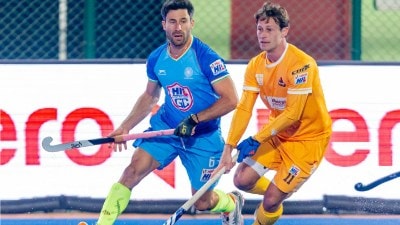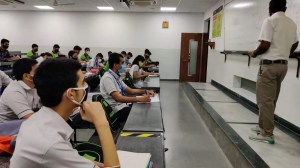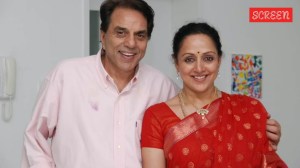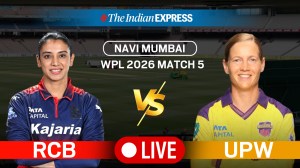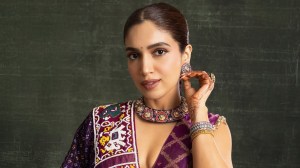The write choice
Most people would trace the beginning of Javed Akhtar's television career to the time Amitabh Bachchan handpicked him to interview the act...

Most people would trace the beginning of Javed Akhtar8217;s television career to the time Amitabh Bachchan handpicked him to interview the actor for Saira Banu8217;s Is Duniya Ke Sitare. But that8217;s not really where it all began. Some years ago, Pritish Nandy persuaded the writer to work on a television show with him, which would require the duo to interview such politicians as Atal Bihari Vajpayee, Manmohan Singh, Mulayam Singh Yadav, I K Gujral and Jyoti Basu among others.
Producers have obviously realised the advantage of hiring an anchor who is intelligent, interested and one who employs a sense of humour to tide over difficult or boring portions. In fact, what one notices on the show, is that his serious demeanour while grilling his subjects often hides a rather tongue-in-cheek wit, though he8217;s quick to disclaim this.
An excerpt from the interview:
How much humour do you employ when you8217;re dealing with celebrities?
Any good conversationalist would know when the conversation is tiring the listeners or even the person you are talking to. At such times, humour is a good comma, a pause, or a break that rejuvenates you and enables you to continue the serious conversation again. So any good conversationalist would know even in their personal conversation how to break the monotony or the boredom that can creep in. If the listener is tired, he8217;s less responsive. So give him a break before giving him another dose.
Does a good interviewer really need to be interested in his subject?
If you want to be good at anything, you have to be interested in it.
What gives the show its standing?
I think the fact that my questions are not personal, but are aimed at the profession of the interviewee.
Who have you enjoyed interviewing most?
Naseeruddin Shah, Deepa Mehta, Ashok Row Kavi, the VHP Vice President Acharya Giriraj Kishore, also Nida Fazli. When an interviewee is forthcoming, it becomes so much more enjoyable.
What made you take on TV work when your film career is booming?
I think if a list of television8217;s most interviewed people was drawn up, I8217;d be on that list. And seeing this, people began pressurising me to have my own talk show, because they found me rather tele-genic laughs8230; I, for my part, kept resisting for a long time, not because I was busy, but because I was really scared that eventually this illusion which people had 8212; of me being good on television 8212; would be proved wrong. Of course I didn8217;t want that to happen. I wanted them to retain their illusions. So the next time someone came with a definite proposal, I accepted it. And that ended up materialising a lot quicker than I expected it to.
You are basically a writer. Do you enjoy television journalism?
I do enjoy it, because apart from being a writer I am also a citizen who is conscious of political and social issues around him, and I have questions to ask. That8217;s what makes it interesting for me. My interviews are not flippant. I don8217;t ask Naseeruddin Shah personal questions. I discuss acting. I don8217;t get into Ashok Row Kavi8217;s personal life. I speak about the situations and problems which pertain to society. And in the process, I learn a lot myself.
And how did it feel when Mr Bachchan requested that you interview him for Saira Banu8217;s show?
I was flattered. That shows perhaps that he had some respect for my aesthetic sense, and my sensibility. We have been colleagues for a long time now, and have worked very closely together. Naturally there is a kind of informality between us that he might not have had with someone who had just come to interview him.
One often notices that when you are interviewing people, there is about you an irreverance to your subject8230;
I wouldn8217;t say irreverance, though I don8217;t treat them with awe, and I8217;m not intimidated by them. But then I8217;m not humiliating them either. We8217;re discussing serious matters, and I admit there is a funny side to everything which may be evoked during the course of the conversation.
8212; Lata Khubchandani
- 01
- 02
- 03
- 04
- 05


